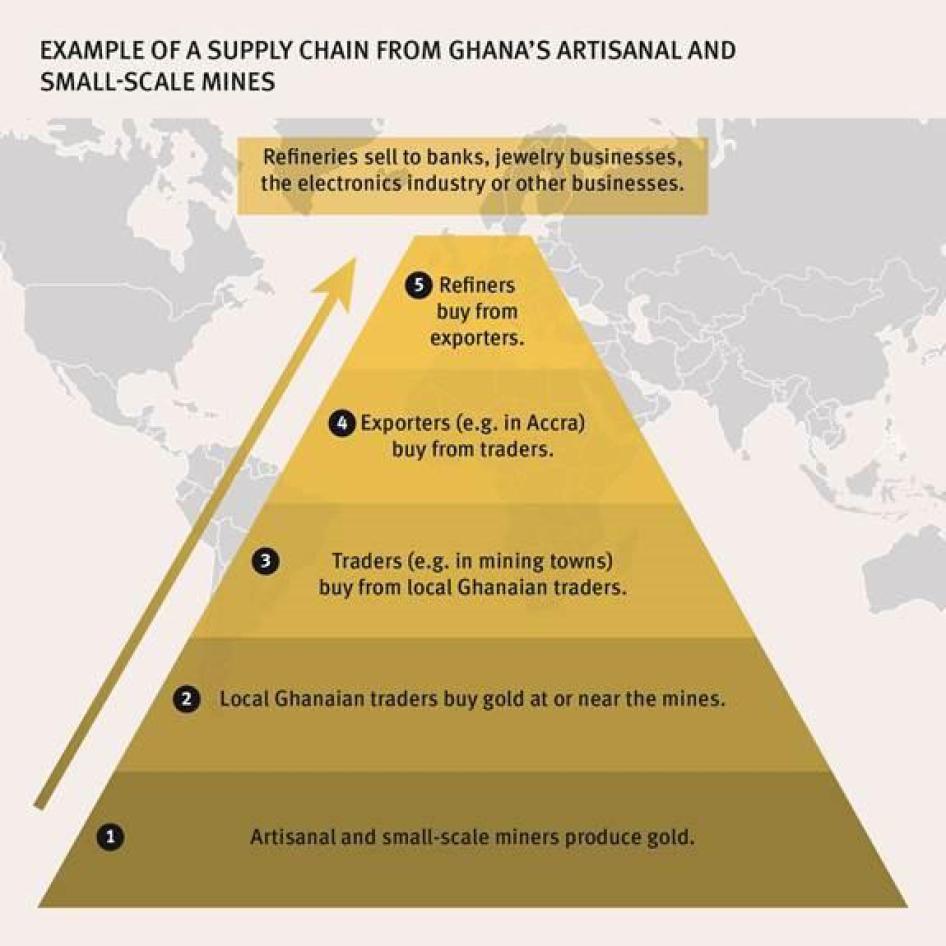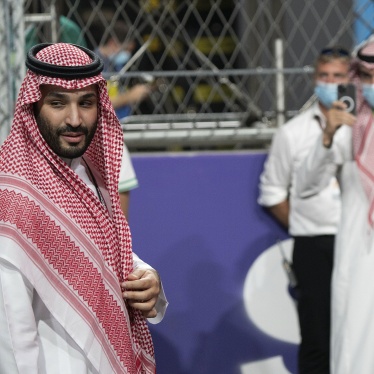In the last decade, Dubai has become an important hub for the global gold trade. Around 40 percent of all gold traded on the international market flows through the “city of gold,” as Dubai likes to call itself. This week, gold refiners, traders, bankers, and others have been assessing gold market trends at the Dubai Precious Metals Conference.
Unfortunately, human rights are not on the meeting’s agenda. And while the Dubai Multi Commodities Centre, a regulatory body, has put in place a standard on responsible sourcing, the standard is voluntary and does not address child labor at all.
Human Rights Watch’s research shows how neglecting child labor in gold supply chains can impact children. In Ghana, we documented how traders bought gold from unlicensed mines, where child labor was common, and sold it to export companies which had insufficient safeguards in place to identify and filter out gold mined by children. Some Ghanaian export companies exported gold to refineries in Dubai, such as Kaloti and Emirates Gold.
Just last month, I visited an artisanal mine in Ghana’s Ashanti region. In the burning heat, I met “Isaac”, a boy digging sideways deep into the rock alongside other children and adults. The scene reminded me of a mine collapse that occurred a few years back in a similar-looking Ghanaian mine, killing 16 people. “Isaac” told me that he had dropped out of primary school to work in mining full-time. He digs, carries ore, and processes the gold with toxic mercury – a practice that carries severe long-term health risks, particularly for children. Asked whether he knows about the dangers of mercury, “Isaac” shook his head.
The gold industry has a responsibility to ensure it does not contribute to child labor and other rights abuse. Gold refiners, jewellers, and others trading in gold should have due diligence measures in place. They should be able to trace the gold they buy back to its mines of origin, include human rights protections in their supplier contracts, and make sure that conditions in the mines are checked by truly independent monitors with expertise in human rights. The results of those monitoring efforts should be made public.
These are not crazy ideas. Some of these measures are detailed in international norms such as the international Organisation for Economic Co-operation and Development’s guidelines for the gold trade.
Gold refiners and traders meeting at the Dubai precious metals conference should not inadvertently support or help fuel child labor in Ghana or other countries where children toil in artisanal gold mines. To be sure their operations are not causing harm to children like Isaac, they should act now.









